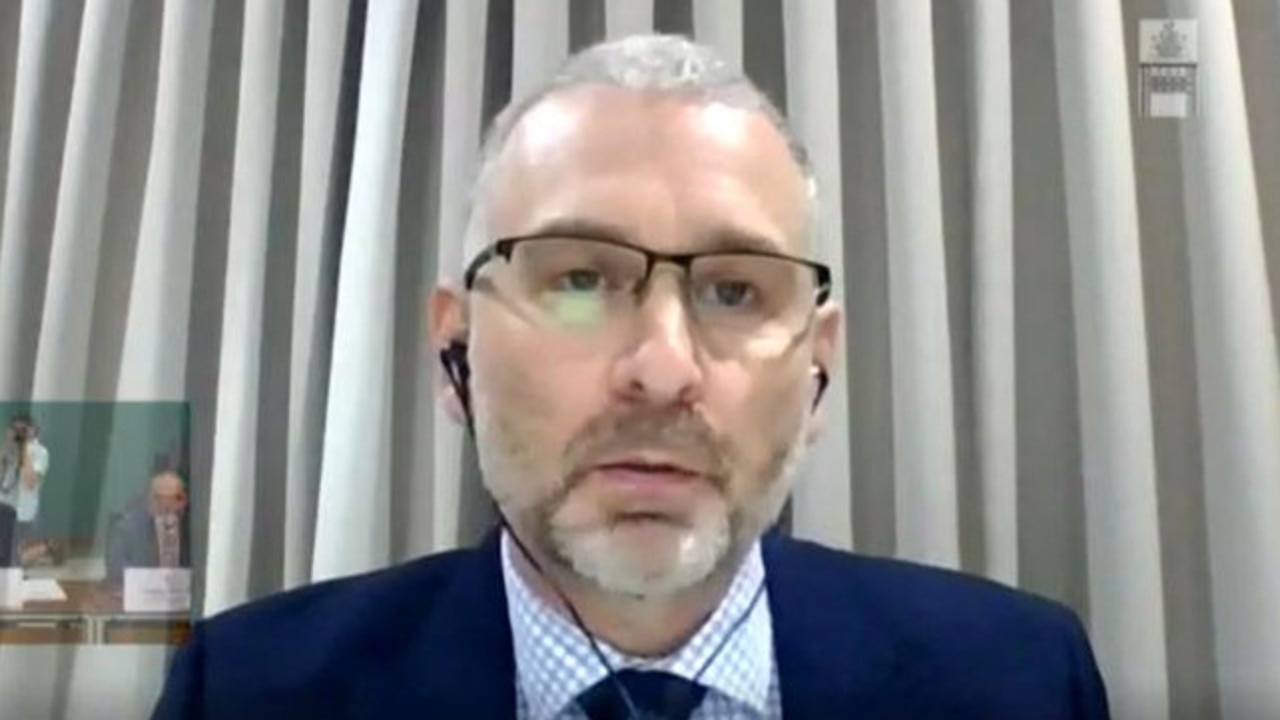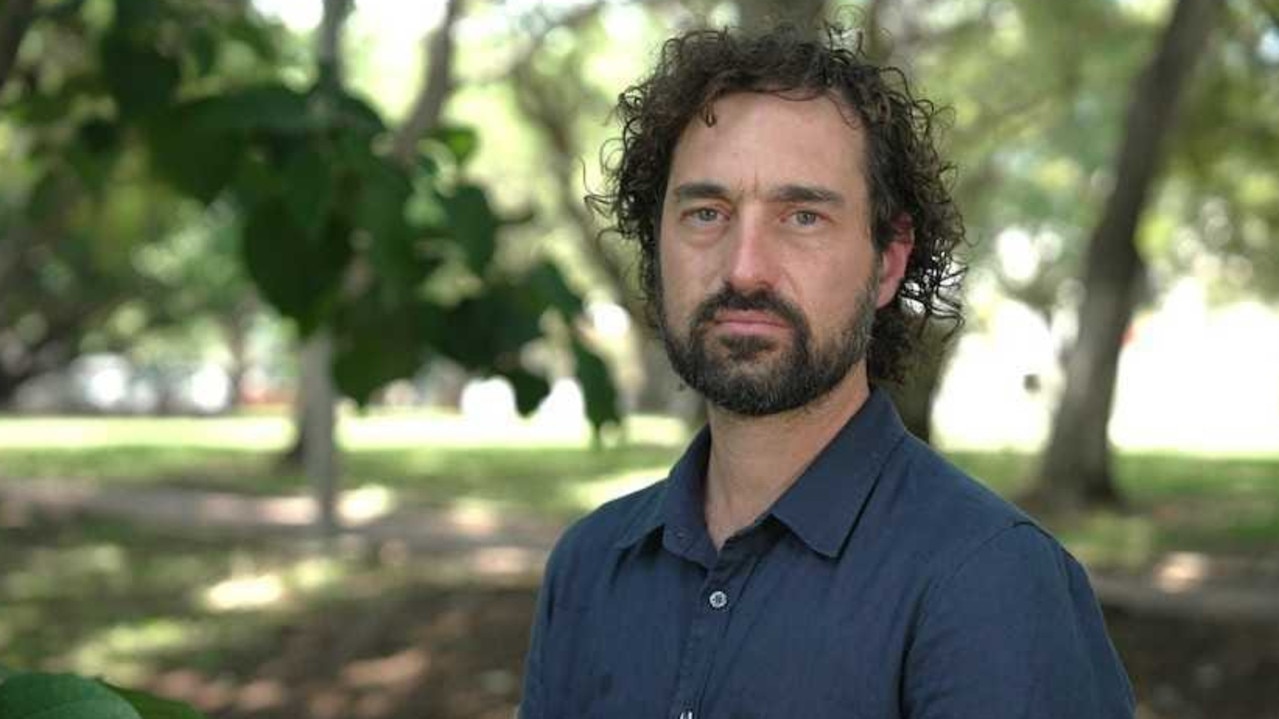Substantiated: ‘Acted inappropriately when he gave special and/or unwelcome attention to female employees’
The Confidential Investigation Report into allegations made by staff of the Office of the Independent Commissioner Against Corruption about the behaviour of Independent Commissioner Against Corruption (ICAC), Michael Riches found five of eight allegations to be substantiated.

Northern Territory
Don't miss out on the headlines from Northern Territory. Followed categories will be added to My News.
The Confidential Investigation Report into allegations made by staff of the Office of the Independent Commissioner Against Corruption about the behaviour of the Independent Commissioner Against Corruption (ICAC), Michael Riches found five of eight allegations to be substantiated.
In four of these Mr Riches was found to have breached his obligations as a CEO under the PSEM Act.
The redacted report has been released two weeks after Mr Riches officioally resigned from his role.
He had been on indefinite paid leave from his role since mid-2024 - on an almost half a million dollar salary.
SUMMARY OF FINDINGS
*It is alleged that Commissioner Riches acted inappropriately when he gave special and/or unwelcome attention to female employees in the office. (Substantiated. Finding of breach of employment instrument.)
*It is alleged that Commissioner Riches acted unreasonably when he gave preferential treatment to employees. (Substantiated. Finding of breach of employment instrument.)
*It is alleged that Commissioner Riches has engaged in repeated and unreasonable behaviour towards REDACTED. (Substantiated. Finding of breach of employment instrument.)
*It is alleged that Commissioner Riches was unreasonable and unfair in his treatment of staff during the abolition of the “coffee club”. (Substantiated. Finding of breach of employment instrument.)
*It is alleged that Commissioner Riches minimised the negative feedback in staff surveys and reviews in a way that eroded trust with staff. (Substantiated. No finding of breach of employment instrument.)
*It is alleged that Commissioner Riches failed to take reasonable action to appropriately support his staff in response to concerns involving REDACTED behaviour. (NOT SUBSTANTIATED)
*It is alleged that Commissioner Riches was unreasonably mistrustful of staff. (NOT SUBSTANTIATED.)
*Commissioner Riches has undermined OICAC (NOT SUBSTANTIATED)
The Report contains detailed and personal accounts of the workplace experiences of 18 witnesses who came forward to provide information.
The report says:
“As part of this investigation, the 18 interviewees (the Interviewees) were asked the same four questions.
The themes which emerged most typically related to work practices, CR’s management and the culture at OICAС.
Three interviewees spoke positively about CR’s leadership. All three were former staff members.
The remainder of interviewees were critical of CR.
Even those who spoke positively of CR corroborated conduct which was emblematic of the challenges in the office.
For example, one of those staff stated that CR “had a thing for pretty girls in the office”.
A male interviewee described one of the more important themes as follows: “As an aside, my observation over time is that CR was not very engaging with me on a social or professional level. My observation of his interactions with the other male staff is the same (or it at least it appeared that way to me). However, it is not obvious to me whether CR was ‘stand-offish’ with the males in the office or whether he is just more comfortable in having friendships and communicating with females in the office. But to my mind, something is off about his approach to female staff.”
Two staff who were the recipients of alleged preferential treatment or special attention declined invitations to participate in the investigation.
Fifteen interviewees described CR’s leadership style in words such as erratic, micromanaging, controlling, distrustful, awkward socially, disproportionate.
Whilst some of his conduct could be described as socially awkward, because he held the statutory office of the ICAC, and also as the CEO, he was expected to, wherever possible, lead by example and be an exemplar of best practice.
This view of his role was articulated in at least three memoranda that he drafted and sent to staff, as well as the “Guidelines for ICAC Staff (2021)”.
One interviewee said: “I’ve found the office to be the most horrible place I’ve ever worked in. It is the worst it has ever been. I’m exploring every option available to get out of there... We certainly don’t have the relationship that we had. It is horrible, but a consequence of where we are now.”

The Investigator is aware that CR received feedback in relation to his conduct from his direct reports. however, it is not evident that this resulted in changes in his behaviour.
He also received deidentified staff feedback via at least two staff surveys.
CR, in the Response and the Submissions, rejected the descriptions in the draft report and the findings with respect to his leadership and engagement with staff.
He submitted that the allegations were tenuous, emblematic of trivial workplace grievances, and in some cases too old to be investigated.
He described the office as having been in disarray and a shambles for some years prior to his arrival.
Together with the Submissions, he provided 13 references from former colleagues from other workplaces to be considered by the Investigator.
They presented a picture very different to the experiences relayed by the Interviewees.
This prompted the Investigator to carefully review her findings of credibility and motivations of those who brought complaints.
However, on balance, the Investigator considers that there is a consistency of themes in the Interviewees’ critique of CR’s leadership style.
Furthermore, if there had been one or two staff complaining, that might have been explained away as simply a possible personality conflict.
However, 17 staff came forward of their own accord, and whilst a few might be dismissed on the basis that they had an axe to grind (or were motivated by bad faith or collusion), the Investigator considers it unlikely that this could be said of all 17 people.
The Investigator is also aware that CR, in his leadership role as CEO and standing as the ICAC, experienced a number of personal and reputational challenges in the public domain, intra-staff conflict that was sometimes not managed well (if at all), as well as recruitment obstacles.
The OICAC, under CR’s leadership, experienced high turnover and low scores in at least two employee satisfaction surveys.
Staff were generally under a lot of pressure due to the nature of their work and the disruptions alluded to.
Many Interviewees, particularly current staff, expressed concerned about the potential repercussions they may experience as a consequence of participating in this investigation and being named, due to CR’s position as their direct manager, the CEO of the OICAC, and/or the ICAC.
The Northern Territory Commissioner for Public Employment said the Report has been redacted to protect the privacy of the witnesses – including names,
roles or work unit titles, gender (where not relevant), and other identifying information or
evidence. This was necessary to comply with the provisions for disclosure of personal
information under the Information Act 2002.
By its nature the Report contains information that would not generally be made public. However, in the interests of transparency, I provide this extract of the Report as a record of the findings of the investigation, which set out to document and assess the allegations made about Mr Riches’ behaviour toward staff and the extent to which these were found to have impacted his obligations as a CEO under the PSEM Act.
Originally published as Substantiated: ‘Acted inappropriately when he gave special and/or unwelcome attention to female employees’






